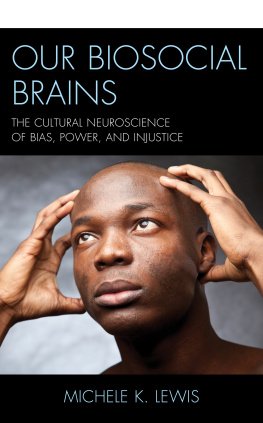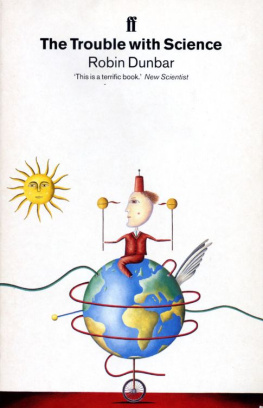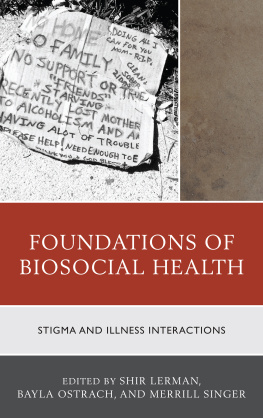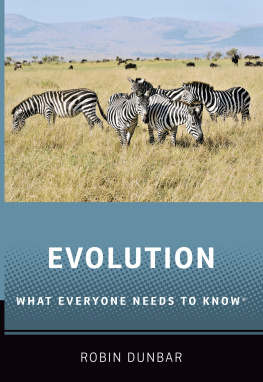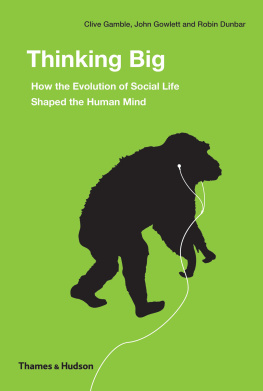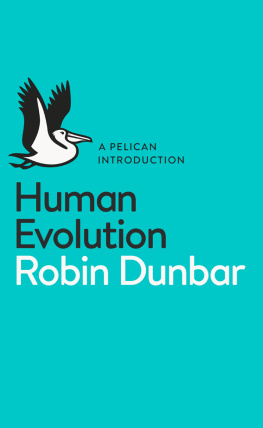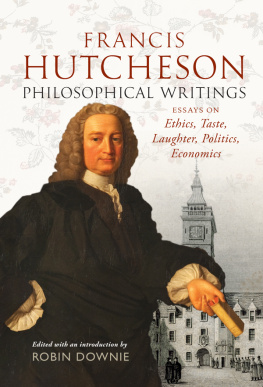"This work of seventeen outstanding essays is a fitting tribute to Robin Fox, one of the most eminent anthropologists and polymaths of our time ... His clarion call in this and numerous other works calling for investigations into pancultural human nature set me and countless others on the quest for biosocial theory in the social sciences. As this book, and a cascade of other books and articles can attest, he has lived to see his dream come true. Biosocial science has breached the shoddy walls of twentieth century social science and is about to take the castle keep."
Anthony Walsh, Ph. D., Boise State University
"Robin Fox's pioneering work on the significance of primate studies for socio-cultural anthropology in the 1970s was deeply inspirational to me. That so many of Robin's ideas were to be vindicated by subsequent research testifies to the visionary character of his thinking at a time when the primate data base was rather scanty, and attempts to bridge the biological and socio-cultural realms were generally met with skepticism or indifference, at best."
Bernard Chapais, University of Montreal
"Sadly Robin may be one of the last great social anthropologists of our lifetime ... And it may be a very long time indeed before we have someone like Robin who masters all of anthropology, from kinship right on up. This excellent book gives us a taste of such an organism and why it so valuable to have at least one of them around."
Robert Trivers, Crafoord Prize for Theoretical Biology of the Swedish Royal Academy
Participant Observer: A Memoir of a Transatlantic Life
Robin Fox Robin Fox takes us on an exuberant personal, intellectual and cultural journey through the 1930s to the 1970s. This is a personal, historical, intellectual journey, one that is at once intriguing, hilarious, and moving. It is a report from the cultural and social battlefront, seen through the personal lens of a combatant. Fox has given us a kind of Cook's Tour through the ideas and intellectual movements of mid-century, when the world changed and the foundations of the twenty-first century were set. It is the history of an education by a narrator in love with learning.
The Character of Human Institutions
This collection of essays by seventeen outstanding scientists and scholars celebrates the life and work of Robin Fox, and the idea of a biosocial science. From early studies of kinship, primates, the brain, evolution, the incest taboo and aggression, to later work on literature, politics, civilization, law, the bible, Shakespeare, and the history of ideas, Fox has inspired many with his evolutionary vision of humanity that goes beyond narrow disciplinary boundaries and embraces the "Universal History of Mankind," including the possible human future. Fox's work encompasses sociobiology but is not limited by it. He preceded it and is both influenced by it and helped to foster it. But his work represents an independent "biosocial science" stream of thinking that accepts the Darwinian mandate while avoiding reductionism by recognizing culture as a natural phenomenon. His contribution has recently been recognized by election to the National Academy of Sciences.
This book is not only a tribute to one remarkable thinker but a brilliant, entertaining and diverse summary of the state of play in current biosocial science and the thought of those influenced by it across the whole intellectual spectrum. It is that rare academic book where high thinking and good humor share the field, as they do in the life of its honoree.
Contributors : Sir Antony Jay, Lionel Tiger, Howard Bloom, Michael McGuire, Kate Fox, Melvin Konner, Alan Macfarlane, Adam Kuper, Dieter Stek-lis, Alexandra Maryanski, Bernard Chapais, Jonathan Turner, Linda Stone, Charles Macdonald, Anne Fox, David Jenkins, Frederick Turner, and the editor, Shakespeare scholar, Michael Egan. The foreword is by Robert Trivers, winner of the Crafoord Prize of the Royal Swedish Academy.
Robin Fox is university professor of social theory at Rutgers University where he founded the department of anthropology in 1967. A former director of research for the H. F. Guggenheim Foundation, he was recently elected to the National Academy of Sciences.
Michael Egan has taught at the University of Massachusetts, Amherst, and Brigham Young University, Hawaii. He was the editor of The Oxfordian and is the author of eleven books.
First published in paperback 2018
By Transaction Publishers, New Jersey, USA
Published 2018
by Routledge
711 Third Avenue, New York, NY 10017
and by Routledge
2 Park Square, Milton Park, Abingdon, Oxon, OX14 4RN
Routledge is an imprint of the Taylor & Francis Group, an informa business
2018 Taylor & Francis
The right of Michael Egan to be identified as author of this work has been asserted by him in accordance with sections 77 and 78 of the Copyright, Designs and Patents Act 1988.
All rights reserved. No part of this book may be reprinted or reproduced or utilised in any form or by any electronic, mechanical, or other means, now known or hereafter invented, including photocopying and recording, or in any information storage or retrieval system, without permission in writing from the publishers.
Trademark notice: Product or corporate names may be trademarks or registered trademarks, and are used only for identification and explanation without intent to infringe.
Library of Congress Catalog Number: 2013039631
ISBN: 978-1-4128-5377-4
Printed in the United States of America
Library of Congress Cataloging-in-Publication Data
The character of human institutions: Robin Fox and the rise of
biosocial science / Michael Egan, editor.
pages cm
1. Fox, Robin, 1934- 2. AnthropologistsEnglandBiography.
3. AnthropologistsUnited StatesBiography. 4. Physical anthropology.
5. Sociobiology. I. Egan, Michael, 1941-, editor.
GN21.F6Z64 2014
301.092dc23
ISBN: 978-1-4128-5377-4 (hbk)
ISBN: 978-1-4128-6554-8 (pbk)
ISBN: 978-1-4128-5428-3 (ebk)
Typeset in Warnock Pro
by Apex CoVantage, LLC
David Jenkins
Antelope
Defies chronology as a master trope
Weaves tapestries of twisted rope
And bits of bone and air
And travels light.
Crooked warp, angled weft, Antelope
Breathes no noisome complaint
Nor ruined lament
Nor tale of otherworldly firmament.
Instead he puzzles through
The randomness of animals
Who, despite all odds surpass their kind
Invent language and divine
The meaning of their fate. Antelope braids
Mystery from human sociability.
With prolixity Antelope wends
No dance nor skate nor yeasty brew
Nor chart and skew of kinship terms
Beyond their ability to convey
Connections primordial and fey.
Still, without weave or trace
Or dreaded count of shuttled thread,
Without Trickster's antlered mask,
His girls provide the point at last.
Note
Antelope (man) ( ktstiwa ) was the name the Indians of Cochiti Pueblo in New Mexico gave to Robin Fox, because of his springy walk, they said.




